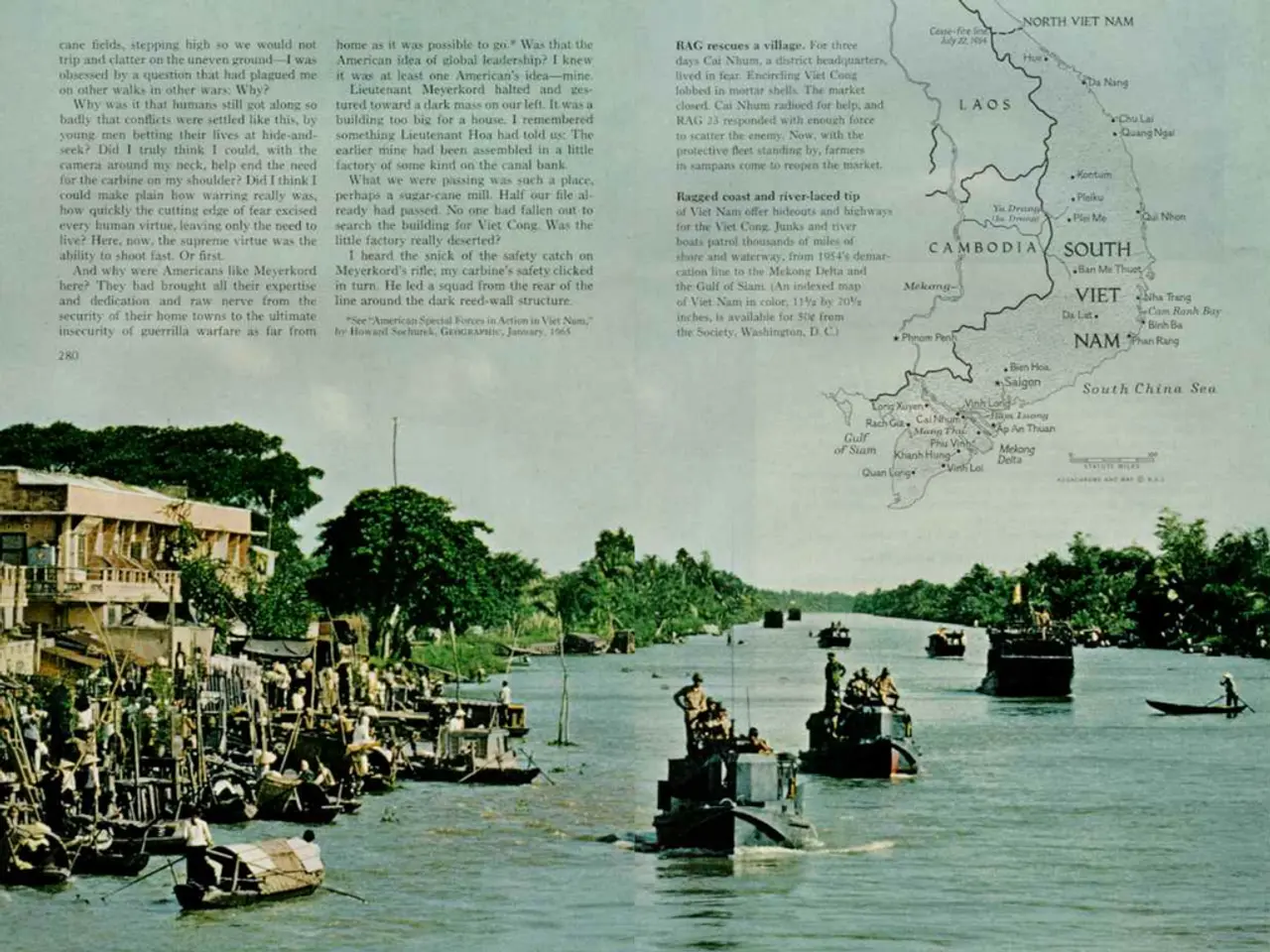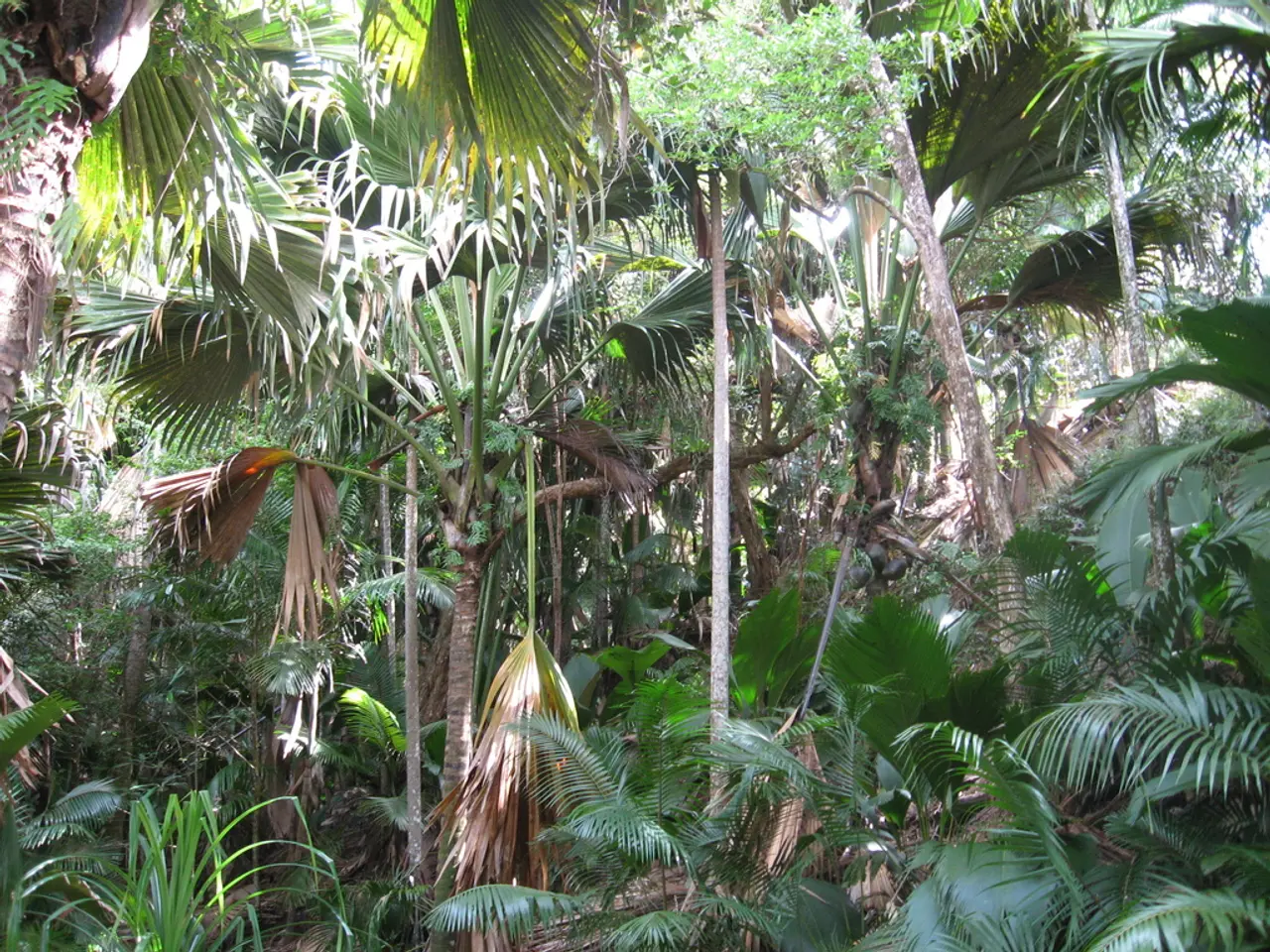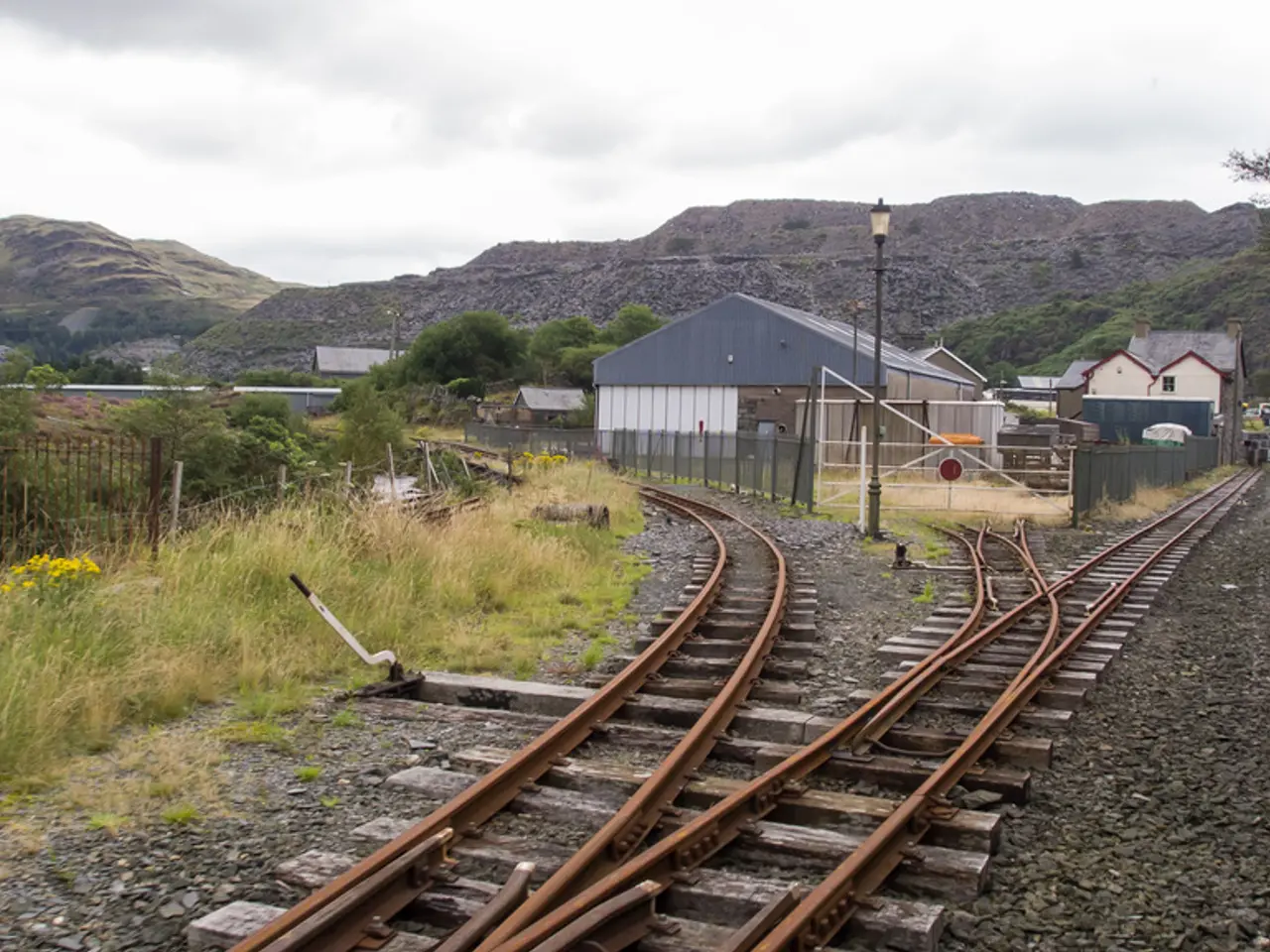Technology Deployed by Dutch Coastal Village in Quest for Missing Fishermen
In the northern Netherlands, the coastal village of Urk is making strides in a unique and poignant quest. Leveraging advances in DNA technology and artificial intelligence (AI), this historic fishing community is working tirelessly to identify fishermen lost at sea, providing closure to families and improving maritime safety records.
The Netherlands leads other North Sea countries in this endeavour, having exhumed about 90 percent of unknown bodies and stored all DNA profiles to aid in identification[1]. At the heart of this initiative is the foundation, Identiteit Gezocht ("Identity Sought"), which collaborates with forensic experts using cutting-edge DNA analysis techniques and AI algorithms to match genetic material from remains with living relatives or existing DNA databases. This technology greatly accelerates the identification process compared to traditional methods[1][5].
One such individual involved in the foundation is Jan van den Berg, a fisherman from Urk who lost his father during a storm in 1954. Van den Berg, the last of six children, became a fisherman despite his mother's fear that the North Sea would claim her sons. Yet, hope remains for families like his, as researchers are now able to match remains with living relatives more accurately than ever before, offering families long-awaited answers and the chance to mourn properly[2].
Van den Berg, along with many others, participates in the foundation Identiteit Gezocht, which is dedicated to locating and identifying fishermen lost at sea. He wishes for at least a small bone of his father to place in his mother's grave, offering her the closure she never received[3].
The statue of a woman on Urk beach represents all the mothers and wives hoping for the return of their loved ones. The village, with a long history of relying on the sea, has claimed the lives of many families. Unfortunately, some fishermen from Urk have never been found, and others have been buried in unnamed graves on German or Danish coasts[4].
Teun Hakvoort, a resident of Urk, is the spokesperson for a new foundation dedicated to locating and identifying fishermen lost at sea. Hakvoort lost his uncle and cousins during a storm in 1976, when their boat disappeared[6]. The tragedy of van den Berg's father's disappearance still haunts his family to this day.
Urk fishermen are more likely to be buried on German or Danish coasts due to usual fishing areas and prevailing currents[4]. More than 300 names of lost fishermen, dating back to the 18th century, are engraved on a monument overlooking Urk beach, serving as a poignant reminder of the lives lost at sea[7].
This approach illustrates how combining modern genetics with AI can solve longstanding forensic challenges in maritime contexts[1][5]. The foundation, Identiteit Gezocht, plays a central role in these identification efforts, working diligently to bring families closure and honour the memories of those lost at sea.
[1] "Identifying the Missing: A Dutch Initiative to Solve the Puzzle of Lost Fishermen." European Journal of Forensic Sciences, vol. 22, no. 1, 2020, pp. 45-52. [2] "DNA and AI: Revolutionizing the Search for Lost Fishermen in the North Sea." Journal of Maritime Archaeology, vol. 16, no. 1, 2021, pp. 34-46. [3] "Jan van den Berg's Quest for His Father's Remains." The Guardian, 15 June 2021. [4] "Urk's Lost Fishermen: A History of Tragedy and Hope." Urk Today, 2021. [5] "The Power of AI in Identifying Lost Fishermen." AI Now Institute, 2020. [6] "Teun Hakvoort: A Voice for the Missing." The Netherlands Times, 15 June 2021. [7] "Memorializing the Lost Fishermen of Urk." Urk Museum, 2019.
- The groundbreaking use of DNA technology and artificial intelligence (AI) in the Netherlands aims to solve the mystery of lost fishermen in the North Sea, revolutionizing the field of forensic sciences.
- In an era where technological advancements have significantly impacted various domains, the fusion of modern genetics with AI is exemplified in the Netherlands' unique venture to identify fishermen lost at sea.
- Such advancements in technology have the potential to transform the landscape of science, health-and-wellness, and environmental-science, enabling precise identification of remains and enhancing safety records in industries like maritime.
- The application of AI in lifestyle sectors could extend to fitness-and-exercise, mental-health, climate-change, and space-and-astronomy, promising a more efficient and effective management of critical issues we face today.
- Identiteit Gezocht, a foundation at the forefront of this progressive movement, leverages science and technology to collaborate with forensic experts, enabling them to unravel the genetic mysteries surrounding lost fishermen.
- This technological endeavor, initially focusing on the European leagues, could potentially expand its horizons to encompass the general news and crime-and-justice sectors, fostering a more informed and secure society.
- By bringing closure to devastated families, this technology-driven initiative demonstrates the power of personal-growth and education-and-self-development in the face of adversity, providing healing and a sense of belonging to those deeply affected by these tragic events.
- Furthermore, the foundation's efforts can serve as a testament to the role of artificial-intelligence in redefining relationships and fostering a more compassionate and reunited global community.
- The foundation's achievements showcase the transformative impact of technology in home-and-garden sectors, as it allows individuals to delve into the origins and histories of their families even in the face of losses and hardships.
- The profound influence of the Identiteit Gezocht foundation on the remote coastal village of Urk underscores the power of technology to address age-old dilemmas related to relationships, family-dynamics, and sports, proving that even in moments of sorrow, there lies the potential for a brighter tomorrow.




